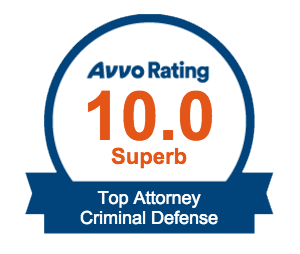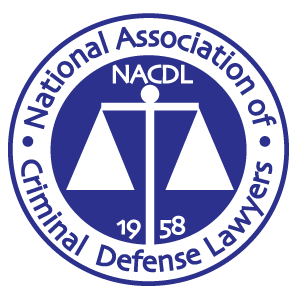California has stringent laws on DUI offenses. If you are going to drive in California, the law expects you to understand the expectations and to avoid any violations. Whether an out of state or an in-state driver, the law applies equally to all. And the penalties are similar as well. If you are arrested for a DUI offense in California with an out of state driver’s license, it is best to get in touch with a California DUI attorney to formulate a defense. At The DUI Defense Attorney, we have an excellent record in defending our clients facing DUI charges and getting them a favorable outcome.
Overview of Interstate DUI Laws
A person residing in another state or holding a driver’s license from another state can drive in California as long as they remember to obey the laws. Similarly, a citizen of California holding a California driver’s license has a right to drive in any state but must adhere to the traffic laws or regulations of that state.
Many states belong to the Interstate Driver’s License Compact (IDLC) that falls under the U.S. Department of Transportation, National Highway Traffic Safety Administration. Being a member of the IDLC means that the state agrees to share details or information on driver violations with member states. This information includes any convictions on a DUI offense of a driver from a member state. This means if a driver from Arizona is arrested in California and convicted of a DUI offense, the state of California must inform Arizona of the conviction.
Similarly, when a driver holds a driver’s license from Arizona and now resides in California if he or she holds a conviction from Arizona on drunk driving, the information must be shared with California. As a driver in California, your previous DUI conviction from a member state of IDLC will serve as a prior if charged with a DUI.
This means that even when you are just visiting California and are arrested on a DUI offense, any previous DUI offense from your state shared with California will hold. Your conviction for a DUI offense in California will take into account your prior conviction from your state or any other member state. When your state is a member of the IDLC, your record will not be confined to your state but will be shared with all member states.
However, in considering your prior DUI/DWI convictions in another state, the conviction is expected to ace the equivalency test to be a violation in California. Unfortunately, California having stringent laws on DUI offenses, nearly all convictions from other states qualify as priors in California. California expects the offense one was convicted of to be similar or equivalent to one in California under VEH 15023(c).
If you hold a California driver’s license and are detained for a DUI/DWI offense in another state, the procedure of arrest will be as per the particular state’s law. Following the arrest, the California DMV will be informed of the same and any conviction after that. Most states have similar laws on drunk driving. One of the first penalties an out of state driver will face the suspension of their driving privileges in California and any IDLC member states.
When DUI charges are leveled against the driver, the prosecution or trial will take place from where their laws were violated. This means, if you are from Texas but got arrested and charged on a DUI offense in California, you will stand trial in California. This makes it complicated, especially when it comes to attending court proceedings. With a local DUI lawyer, however, it may be more comfortable because the lawyer will plead with the court to allow you not to attend court proceedings.
It is important to note that, as a holder of California driver’s license, when convicted of a DUI offense in a different state, your driving privileges will also be affected in California as well. Fortunately, if the driver is sentenced to probation and DUI classes, the sentence can be served in California as long as you are a member of IDLC.
What Happens if Arrested for a DUI in California?
The procedure of arresting a person is standard throughout California. The officer must have a valid reason to pull you over, but not randomly. When arrested, both field sobriety tests and chemical tests will be administered even when you hold an out of state license. If your BAC is found to be 0.08% or more, the police officer will either do one of the following depending on your residence:
- If you hold a California driver’s license, it will be confiscated and a temporary license issued. The temporary license expires in thirty days.
- If you hold a driver’s license from another state, the police will inform you that your driving privilege in California is on suspension for thirty days.
The offense is reported to the DMV, where the arrested driver or their lawyer must request an administrative hearing in ten days. The hearing is designed for the driver to defend their actions and convince the DMV why their license should not be suspended or why their driving privileges should be reinstated.
With the installation of an ignition interlock device, a driver can be permitted to continue driving in California. When the court sentences an out of state driver to attend a DUI school program, through your lawyer, you can petition for a 1650 waiver. This means that, if it is given, the defendant can attend and complete the DUI school program from their home state.
Out of State Drivers and California DMV
As earlier stated, when you get detained for a DUI offense, you must request a DMV hearing within ten days from the day of arrest. This rule is applicable to out of state drivers as well. If you fail to ask for a hearing in the given time, your rights to a hearing are forfeited.
If your lawyer or yourself request for the administrative DMV hearing in ten days, your driving privilege suspension is postponed until the outcome of the hearing. Hiring a local DUI attorney helps in the hearing because you do not have to be present as long as your attorney is. In order for your privileges to be suspended, the officer must prove three elements as true, these are:
- The officer had a valid reason to believe you were driving under the influence
- You were arrested lawfully
- You were driving with a BAC of 0.08 or over
A DMV hearing is not as formal compared to a court proceeding. However, your lawyer is allowed to represent you to give a more compelling argument. A DUI attorney is more conversant with what to say compared to yourself and has a better chance of prevailing and prevent the suspension of your privileges.
If you lose your DMV hearing, your privileges to operate a vehicle in California are suspended. The period of suspension will depend on any prior DUI sentences you have from your state or any IDLC member state. Typically, a first offender in California gets their privileges suspended for thirty days. The period is longer with prior DUI convictions. The DMV allows you to continue driving if you install an IID device in your vehicle or upon a successful application of a restricted driver’s license.
When your home state is a member of the IDLC, a suspension of your driving privileges in California may also affect your rights at home. The concept under IDLC is that a driver has one driver’s license, and their driving record is one. Because of this, most home states take action against a driver that is arrested on a DUI offense in California. However, the action taken by each state may vary depending on their laws.
The Court Process in California for an Out of State Driver
It is important to understand the hearing by the DMV is separate from that of the court. And the outcome of each may not affect the decision of the other. Whether or not you request a DMV hearing and lose or win it, your DUI offense proceedings will still continue in court. Fortunately, the court will allow your lawyer to appear in court in your place instead of making the commute to appear in court.
When facing misdemeanor charges, you can have a local DUI lawyer defend you and waive your rights to be involved as the lawyer:
- Collects all the necessary evidence
- Discuss or negotiate your case with the prosecutor
- Makes court appearances in your place
However, it is not automatic that the lawyer will appear in your place in court. Your lawyer must make a formal request to the court, and the judge determines if your presence is necessary or your lawyer can appear for you. Most lawyers, however, advise their clients to appear in court as a strategy to the case. Making eye contact with the jury or them feeling they know you can influence their decision. When the jury feels disconnected from you, they can easily convict you of the offense.
If your lawyer succeeds in getting your charges dropped, your state is likely not to take action against you. However, if found guilty of the offense, you face California sentencing and penalties. This means that your privileges for driving are suspended in California, and you will likely face similar restrictions at home.
When your state penalizes you, their penalty will stay in place until you satisfy your sentences in California for the offense. This means all requirements set forth by the court must be fulfilled, like paying fines or attending a DUI school program.
After fulfilling the obligations given and having your license suspension period lapse, with the help of your DUI attorney in California, you will be required to get in touch with the DMV to reinstate your driving privileges. When this is done, your state also will lift its conditions on your license.
Even as an out of state driver, the state of California prohibits you from driving with a suspended license, when arrested for this offense, you will be charged with violating VEH 14601. If you are arrested and convicted for driving while your license is on suspension, this will similarly be shared with your state.
Penalties for an Out of State DUI Arrest
Even as an out of state driver, being convicted of a DUI offense in California carries strict penalties. The penalties, however, depending on your criminal record and the severity or circumstances of the offense. Typically, standard DUI offenses are prosecuted as misdemeanors, and the penalties are the same for in-state and out of state drivers.
DUI offenses can also be prosecuted as felonies with steeper penalties. Various factors determine if a DUI will be prosecuted as a misdemeanor or a felony. Some of these factors are:
- Prior DUI convictions – California being a member of IDLC means that it considers any previous driving under the influence convictions from your home state or other member states. Your DUI convictions, if any, are shared among member states. This determines your charges for any subsequent DUI offenses and penalties. A DUI offense is a priorable offense. This means that the penalties for each offense are based on your previous record. A first time offender faces less severe penalties compared to a second-time offender. In California, if you are facing your fourth DUI offense, it automatically becomes a felony, and the penalties are harsher.
- DUI with injuries or fatalities – a standard DUI where no third party is injured as a result is prosecuted as a misdemeanor as long as it is not a fourth offense. However, even when it is your first offense, if as a result of your DUI, a third party gets significantly injured or killed, you will be prosecuted on felony charges. When one causes injuries to others or death, it is a more severe offense than a standard DUI.
It is important to note that a conviction on a DUI offense from your home state or any other state that is a member of the IDLC is prior. This is important when prosecuting you for a DUI offense and the penalties given.
Penalties for a First DUI Offense
If you are prosecuted on misdemeanor charges as a first offender, the possible penalties will include:
- Spending a minimum of two days in county jail or performing community service. If you refuse to submit to a chemical test, you can be sentenced to additional time in jail for not more than two days.
- Paying a fine of ranging from $390 to $1,000
- Serving summary probation of between three and five years
- Attending and completing a DUI school program or three or six or nine months
- Being ordered to install an IID device for five months in your vehicle
- Suspension of your driving privileges in California for six to ten months
However, with an experienced DUI attorney, you can challenge the evidence by the prosecution and get your charges dismissed.
Second DUI Offense
As earlier stated, your prior record in DUI case matters, and does not have to be from California. The penalties, in this case, are steeper compared to a first offender. If convicted on misdemeanor charges, the possible penalties include:
- An increase in your jail time to not less than 96 hours but not exceeding a year
- A cash fine ranging from $390 to $1,000. Although this is the same range as the fine for a first offender, the amount asked is usually higher than before. Additionally, there will be court penalties that are typically five times the fine amount. This will mean that a defendant will be charged a minimum assessment fee of $1,950
- Summary probation that ranges between three and five years but typically more prolonged than for a first offender
- Suspension of your driving privileges in California for a year
Third Time DUI Offender
If you are arrested on standard DUI offense as a third-time offender, you will face misdemeanor prosecution as a second offender. However, the penalties received will be harsher, and they include:
- Being charged a fine ranging between $390 and $1,000 in addition to court assessment fees. The fine charged will also be higher than that of a second offender
- You will be branded the status of a habitual traffic offender for three years
- Probation period lasting between three and five years
- Attending and completing a DUI school program for thirty months
- Suspension of your driving privileges in California for three years
- A jail sentence lasting between 120 days to one year
Fourth DUI Offense
As earlier stated, committing a DUI offense within the ten years from your first DUI offense will lead to felony DUI prosecution. The penalties for this offense are steeper and may include:
- State imprisonment for a minimum of 180 days, and 16 or 24 or 36 months maximum
- Being charged a fine ranging from $390 to $1,000
- Formal probation ranging between three and five years
- Attending and completing a DUI school program of thirty months
- Gaining the habitual traffic offender status
- Suspension of your driving privileges in California for up to four years.
As earlier stated, a DUI with other aggravating factors can determine the type of charges an out of state driver would face. These factors may mean the driver faces other charges alongside the DUI charges, or they will increase the penalties handed to the driver. These aggravating factors include:
- Driving under the influence with a minor in your car
- Driving with a BAC of 0.15% or more
- Driving with over the legal speed limit of at least 20mph
- Causing significant injuries while driving under the influence
- Causing a DUI fatality which may lead to additional charges of gross vehicular manslaughter or negligent vehicular manslaughter
If any of these circumstances are present in your DUI offense, the penalties are steeper and will lead to significant consequences.
Find a Los Angeles DUI Lawyer Near Me
Whether passing through California or visiting for a while, you are permitted to drive. However, you must hold a valid driver’s license from your state. If a police officer suspects you of intoxicated driving, you will be arrested and face similar charges as an in-state driver would. Taking the charges for granted can have serious repercussions making it essential to find a local DUI lawyer to defend you. At The DUI Defense Attorney, we can help you fight DUI allegations against you even as an out of state driver. Call us at 818-253-1913, and let us help you with these allegations.













